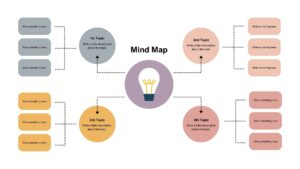Personal branding isn’t just about self-promotion it’s about establishing credibility. Sharing relevant content, showcasing achievements, and engaging with industry professionals demonstrate a graduate’s expertise and dedication.

As we move further into the digital age, the ability to establish an online personal brand has become a cornerstone of professional success. For graduates stepping into the workforce in 2025, a well-crafted personal brand is not merely a differentiator—it’s a necessity.
In a competitive job market, employers are not just seeking qualified candidates; they’re searching for individuals who stand out. Personal branding helps graduates showcase their skills, accomplishments, and unique qualities in a way that traditional resumes cannot.
A study by LinkedIn revealed that 70% of employers use social media to screen potential candidates, and nearly 50% of hiring decisions are influenced by a candidate’s online presence.
For graduates, this means a strong digital footprint can open doors to career opportunities, professional connections, and industry recognition.
As an expert in higher education marketing, I’ve observed how universities are increasingly embedding personal branding into their career services, recognizing its vital role in preparing students for the modern workplace.
1. The Changing Landscape of Graduate Employability
The job market of 2025 is a far cry from the traditional recruitment processes of the past. Digital transformation has fundamentally reshaped how employers evaluate candidates.

For graduates, standing out means embracing this digital shift.
Evolving Employer Expectations
According to CareerBuilder, 70% of employers use social media to screen candidates, and 54% of hiring managers have reconsidered hiring someone based on their social media activity.
This shift emphasizes the need for graduates to curate a professional online image. An unpolished digital footprint—or worse, a lack of online presence—can negatively impact a candidate’s prospects.
Employers now expect graduates to demonstrate digital fluency, including the ability to communicate effectively online, engage with industry-relevant content, and establish thought leadership.
These expectations align seamlessly with higher education marketing strategies, which emphasize employability and skill-building. Universities that equip students with personal branding tools not only prepare them for the job market but also enhance their institutional reputation.
Competitive Differentiation
In a saturated market, personal branding helps graduates differentiate themselves. A well-crafted online presence enables candidates to highlight their unique qualities, whether it’s expertise in a niche area or a passion for industry trends.
For example, a graduate with a well-maintained LinkedIn profile, engaging posts, and a professional portfolio is far more likely to catch the eye of recruiters.
As universities focus on digital marketing for higher education, they must also emphasize the role of personal branding in career readiness.
By fostering digital skills and branding awareness, institutions can ensure graduates are equipped to navigate an increasingly competitive landscape.
2. Why Personal Branding is Crucial for Graduates

First Impressions are Now Digital
First impressions are no longer made in person; they’re made online. Studies indicate that 92% of recruiters use LinkedIn to vet candidates before interviews.
A professional photo, optimized headline, and engaging profile can significantly impact how a candidate is perceived. For graduates, personal branding is about taking control of that narrative.
In the context of higher education marketing, personal branding also ties into employability metrics. Universities that encourage students to build a strong online presence enhance their placement statistics, benefiting both the institution and the student.
Building Trust and Credibility
Personal branding isn’t just about self-promotion—it’s about establishing credibility. Sharing relevant content, showcasing achievements, and engaging with industry professionals demonstrate a graduate’s expertise and dedication.
Graduates who build trust through authenticity are more likely to be seen as reliable and capable, making them attractive to employers.
Networking and Relationship Building
A strong personal brand facilitates meaningful connections. Platforms like LinkedIn are not just job boards but networking ecosystems.
Graduates can connect with industry leaders, participate in discussions, and gain insights into potential career paths. This aligns with digital marketing higher education strategies, where networking is a critical skill emphasized in career development programs.
3. Key Components of a Strong Personal Brand

Defining Your Unique Value Proposition (UVP)
At the heart of personal branding is clarity about what makes you unique. Graduates must identify their strengths, values, and career aspirations. A UVP answers questions like:
- What skills set you apart from peers?
- How do your values align with industry needs?
- What impact do you aim to create in your field?
For instance, a graduate passionate about renewable energy could highlight projects, internships, or certifications in sustainability. This not only demonstrates expertise but also aligns with trends in marketing for higher education, where sustainability is a growing focus.
4. Crafting a Professional Online Presence

A compelling online presence begins with optimizing key platforms.
- LinkedIn: Graduates should invest in a professional photo, an engaging headline, and a summary that highlights achievements. Keywords such as “digital marketing for higher education” can improve profile visibility.
- Personal Website: A dedicated website serves as a portfolio, showcasing work samples, blogs, and certifications. Tools like WordPress or Wix make website creation accessible for graduates.
- Social Media: Platforms like Twitter and Instagram can be leveraged for thought leadership by sharing industry insights and engaging with relevant content.
Consistency across platforms is critical to reinforcing the graduate’s brand identity.
Creating Valuable Content
Content creation is a powerful way to showcase expertise. Graduates can write blogs, record videos, or create infographics on topics related to their field.
For example, a computer science graduate could share insights on AI trends or coding tutorials, demonstrating thought leadership.
5. The Role of Universities in Personal Branding
Universities play an instrumental role in preparing students for personal branding. As part of higher education marketing strategies, institutions can:

- Embed Branding in Curricula: Courses on digital literacy and personal branding should be integrated into career readiness programs.
- Offer Workshops: Sessions on LinkedIn optimization, portfolio building, and networking skills can empower students.
- Provide Platforms: Career services can collaborate with alumni networks to connect students with mentors who exemplify strong personal branding.
A university that prioritizes personal branding initiatives not only benefits its students but also strengthens its brand image. By equipping graduates with these skills, institutions enhance their reputation in the competitive space of higher education digital marketing.
6. Actionable Steps for Graduates

Audit Your Digital Footprint
Graduates should Google themselves to identify what potential employers might see. Cleaning up unprofessional content and aligning profiles with career goals is essential.
Engage with Industry Content
Graduates should follow industry thought leaders, share articles, and contribute to discussions. This active engagement showcases curiosity and professionalism.
Regular Updates and Analytics
Personal branding is an evolving process. Using tools like LinkedIn Analytics to track engagement and improve content strategies ensures graduates remain relevant in a dynamic job market.
7. The Future of Personal Branding for Graduates
The landscape of personal branding for graduates is evolving rapidly, driven by advancements in technology, changing employer expectations, and the rise of digital-first interactions.

For graduates entering the workforce in 2025, staying ahead of these trends will be essential to crafting a personal brand that stands out in a competitive market.
The Integration of AI and Automation
Artificial intelligence is reshaping how personal branding is approached. Tools like ChatGPT and Canva are empowering graduates to create high-quality content, optimize LinkedIn profiles, and design visually appealing portfolios with minimal effort.
AI-driven analytics tools will provide deeper insights into audience preferences, allowing graduates to refine their messaging for maximum impact. Automation will also streamline branding efforts, such as scheduling posts or generating content ideas, freeing up time for strategic engagement.
The Dominance of Video Content
Video content will continue to dominate personal branding strategies in 2025. Platforms like TikTok, YouTube, and Instagram Reels provide graduates with opportunities to showcase expertise, creativity, and personality.
A short video explaining a project, sharing industry insights, or narrating a professional journey can leave a lasting impression. Graduates who effectively leverage video will differentiate themselves in the job market.
Authenticity and Human Connection
As digital interactions become more prevalent, authenticity will be the cornerstone of successful personal branding. Employers and networks value genuine narratives that resonate emotionally.
Graduates who share authentic stories, challenges, and achievements will foster trust and build meaningful relationships.
The Emergence of Immersive Experiences
The metaverse and augmented reality (AR) are poised to revolutionize personal branding. Virtual resumes, interactive portfolios, and AR-powered networking will redefine how graduates present their skills and engage with industry professionals.
The future of personal branding is dynamic, and those who embrace innovation and authenticity will unlock unparalleled career opportunities.
Are you ready to shape the future of your personal brand?
Conclusion
Building an online personal brand is no longer optional for graduates; it’s essential for navigating the professional world in 2025.
A strong personal brand enhances visibility, builds credibility, and opens doors to invaluable opportunities. Universities, as part of their higher education marketing strategies, must emphasize personal branding to ensure graduates thrive in the digital era.
By taking proactive steps to craft their digital identities, graduates can position themselves as future-ready professionals.
Are you ready to shape your digital narrative and unlock your full career potential?
![Higher Education Marketing 2023 and Beyond [Detailed Analysis], Higher Education Marketing, Education Marketing, Education PR, Digital PR, Public Relations, Digital Marketing, social media, SEO for Higher Education, Digital Marketing for Higher Education](https://firdoshkhan.in/wp-content/uploads/2022/11/Higher-Education-Marketing-300x200.jpg)

